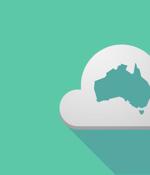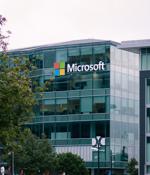Security News

Australia is about to get a national online ID system - the Digital ID - which promises to improve the security and privacy of data online. The Digital ID is the cumulation of a five-year, AUD $200 million investment as an effort to alleviate security concerns over the amount of data Australians give to companies to prove who they are online.

Australia is building a top-secret cloud to host intelligence data and share it with the US and UK, which have their own clouds built for the same purpose. The three clouds were discussed on Monday by Andrew Shearer, Australia's director-general of national intelligence, at an event hosted by the Center for Strategic & International Studies in Washington, DC. "We are working very hard on a top-secret cloud initiative," Shearer told the event, adding that it will interoperate with similar infrastructure already operated by the US and UK, and mean sensitive data can be shared "Near instantaneously."

Asia in brief Australia's National Cyber Security Coordinator has described an attack on logistics company DP World as a "Nationally significant cyber incident."Cloud Software Group, parent company of Citrix, has become the latest tech player to exit China.

Jessie Jamieson, staff research engineer for decision science operations at cyber exposure management firm Tenable, said what has been absent from the strategy detail released so far has been a focus on the one thing that underpins everything: data science. In general, "Everyone is a little behind from a data perspective," Jamieson said, with the obvious recent example being the headlong rush around the world to use data as part of artificial intelligence models, including generative AI. "Some companies are being more careful, but there is so much discussion at the moment about developing these things quickly without asking questions like how these plug into a data process or what the process is around generating training data," she said.

Microsoft plans to more than double its cloud computing capacity in Australia over the next two years and expand its support for critical national cyber security and technology skills priorities. Fast-growing demand for cloud computing services across Australia has seen Microsoft announce the injection of AU $5 billion into the market, in a move it says will support Australia's ability to seize the economic and productivity advantages of artificial intelligence.

The success of cyber attacks in Australia could make an "Assume-breach" approach to cyber security inevitable and cause IT teams to shift their focus to protecting data backups at all costs. Rubrik's technology leader for Australia and New Zealand, Dale Heath, has said many local organizations still have an operational resilience mindset and are relying on systems not designed for cyber resilience when ransomware attackers breach perimeter defenses.

The ACCC has given the green light for cross-banking collaboration to address scams. 1.5 billion came from investment scams, with remote access scams and payment redirection scams rounding out the top three.

Australian and Aotearoa New Zealand organizations know they're rapidly hurtling towards a security precipice and are willing to invest to try to save themselves from tipping over. New research from Gartner shows that security is becoming one of the most lucrative areas of IT in both countries.

Pizza Hut Australia is sending data breach notifications to customers, warning that a cyberattack allowed hackers to access their personal information. The notification warns that the hacker gained unauthorized access to Pizza Hut Australia systems storing sensitive info for customers who made online orders, as well as partial financial data and encrypted account passwords.

Australia will build "Six cyber shields around our nation" declared home affairs minister Clare O'Neill yesterday, as part of a national cyber security strategy. All of the above is scheduled to be in place by 2030, when O'Neill expects Australia to lead the world in all things cyber.